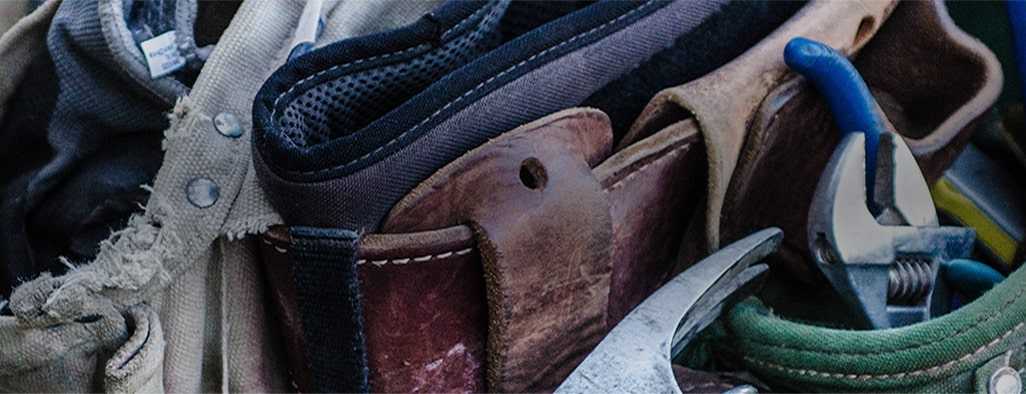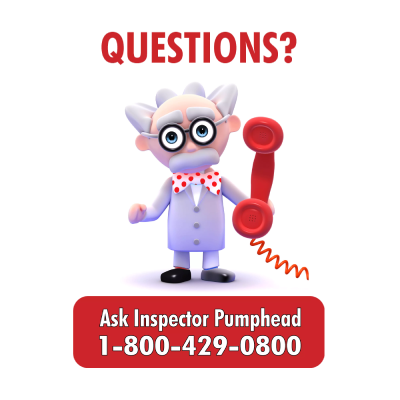Welcome to Inspector Pumphead’s Frequently Asked Questions! I will be answering some of the most common questions we get on a specific topic. Some of this information may also be available elsewhere, but this feature will serve as a convenient one-stop source. In this edition, I’ll talk about sewage pumps and grinder pumps.
First, watch the video explanation below:
Are sewage pumps and grinder pumps the same thing?
This is where taxonomy becomes important: all grinder pumps are sewage pumps, but not all sewage pumps are grinder pumps. Much like the old quadrilateral adage (“all squares are rectangles, but not all rectangles are squares”), this aptly describes a relationship where one (sewage) is general and the other (grinder) is specialized. The key fact is that both pumps are built to move sewage when the sewage line is above the point of collection (such as with a basement toilet).
So what’s the difference between these two kinds of pumps?

The difference between the two is the type and size of the solids that can pass through the pump. Sewage pumps can pass up to 2” waste solids. “Waste solids” in this instance generally refers to human waste (gross) or other ‘soft’ solids that can easily be broken down or dissolved. Harder and thicker solids will clog and eventually damage the pump.
Grinder pumps incorporate a cutter or cutting mechanism that macerates (grinds/chops) the solids into a fine slurry to be exported. The fine slurry can be pumped higher than the solids from the sewage ejector pumps.
So should I just get a grinder pump for my house if I’m worried about clogging and waste solids?
Grinders are more expensive, require more power and are typically built for commercial and/or light industrial applications wajit paihere a system might be strained by trying to process solids. Think motels or any place where a lot of people will use the system everyday without caring about what they flush. I’m talking about diapers, plastic, wipes, gloves, etc. So unless something very strange is going on at your house, you probably won’t need a grinder.
Sewage pumps are less expensive and more suitable for domestic and/or light commercial applications. Still, if you really want a grinder for more domestic applications, Liberty makes the PRG ProVore/Omnivore grinder pump series for just such a purpose.
So if I do have a grinder, can I just throw any old thing down there without worry?
Not exactly. While grinders are well equipped to macerate solids, they are not impervious to wear and tear over time. If things that should not be flushed down the toilet keep getting flushed down there, eventually, yes, even a grinder pump will suffer damage and have to be replaced. That is why you should do everything possible to make sure that people – whether they be employees, guests, tenants – do not abuse your system. As I always say, preventative care is the best way to ensure that your equipment keeps operating in good health for a long time.
Pump Products application engineers are standing by to help you find the right pump, as well as to provide price quotes, availability and shipping information. Call our toll free number 1-800-429-0800.





